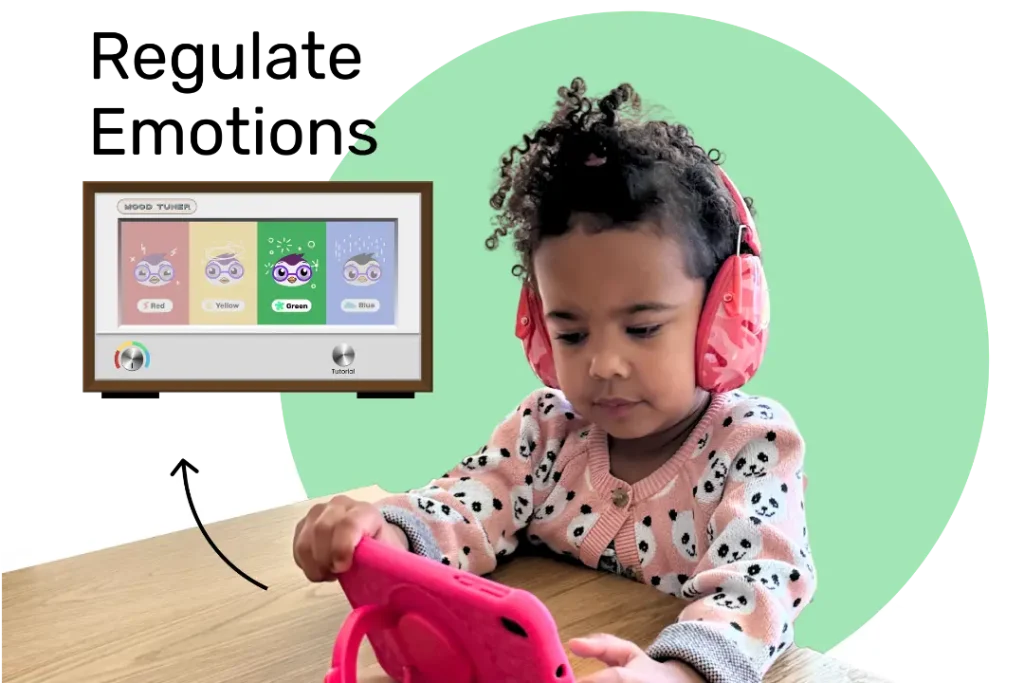Remain calm: When your child is angry, it will be more difficult to diffuse the situation if you meet his or her anger with more anger. This guide is here to assist you in understanding and supporting your neurodivergent child’s emotional journey. We’ll cover strategies for managing kids with anger issues, identifying triggers, and fostering healthy communication. Plus, we’ll discuss how Goally can be a valuable tool in your parenting arsenal. So, let’s get started!
Table of Contents
Why Do Kids with Anger Issues Struggle?
Neurodivergent kids, such as those with ADHD or autism, may experience anger more intensely or frequently than their neurotypical peers.
This can be due to a variety of factors, including:
- Difficulty with emotional regulation
- Sensory sensitivities
- Challenges in social interactions
- Feeling overwhelmed or misunderstood
Understanding the root causes of your child’s anger can help you develop targeted strategies to support them. It’s essential to approach each situation with empathy and patience, as your child may not always have the tools to express their emotions effectively.
Identifying Triggers and Warning Signs
Every child is unique, and so are their triggers. To help your child manage their anger, it’s essential to identify what sets them off. Common triggers for kids with thinking and learning differences include:
- Transitions or changes in routine
- Noisy or crowded environments
- Feeling ignored or dismissed
- Academic or social challenges
Once you’ve identified triggers, pay attention to warning signs that your child is becoming upset.

Read more: ADHD Anger Issues in Kids
These can include:
- Clenched fists or jaw
- Increased pacing or fidgeting
- Changes in tone of voice or facial expressions
- Withdrawal from social situations
Recognizing these signs can help you intervene before a situation escalates. By addressing the issue early, you can prevent meltdowns and help your child regain control of their emotions.
Strategies for Managing Anger
When it comes to helping kids with anger issues, a proactive approach is critical.
Here are some strategies to try:
- Teach self-awareness: Encourage your child to recognize and express their feelings, even when they’re not angry. This can help them develop emotional intelligence and self-regulation skills.
- Model healthy coping strategies: Show your child how you manage your own emotions by using techniques like deep breathing, counting to ten, or taking a break.
- Establish a calm-down space: Create a designated area in your home where your child can go to relax and regroup when they’re feeling overwhelmed.
- Use visual supports: Visual schedules, social stories, and other visual aids can help kids with thinking and learning differences understand expectations and navigate challenging situations.
- Implement a reward system: Reinforce positive behavior by using a reward system, like Goally, to motivate your child and help them stay on track.
Read more: ADHD Child Hitting Parents?
Remember, consistency is crucial when implementing these strategies. It may take time for your kid to adapt, but with patience and persistence, you’ll see progress.
Fostering Healthy Communication
Open communication is crucial for helping your child manage their anger.
Here are some tips for fostering healthy communication:
- Listen actively and empathetically to your child’s concerns
- Validate their feelings, even if you disagree with their actions
- Use “I” statements to express your own feelings and concerns
- Encourage problem-solving and collaboration
- Seek professional support, such as therapy or counseling, if needed

Check out this printable feeling chart for kids.
Remember, it’s essential to model respectful communication and maintain a supportive environment at home. By doing so, you’ll create a safe space for your child to express their emotions and work through their anger.
How Goally Can Help
Goally is a learning tablet designed specifically for neurodivergent kids, offering a range of apps and tools to support their unique needs.
Here’s how Goally can help your child manage their anger:
- Visual schedules: Goally’s visual schedules can help your child navigate transitions and routines, reducing potential triggers.
- Task management: Break down tasks into manageable steps, helping your child feel less overwhelmed and more in control.
- Reward system: Goally’s built-in reward system can motivate your child to practice self-regulation and positive behavior.
- Parental support: Goally offers resources and guidance for parents, helping you better understand and support your child’s emotional journey.
By integrating Goally into your daily routine, you can provide your child with the structure and support they need to manage their anger effectively.
Goally | Kid’s Tablet for Building Emotional Regulation Skills
Is your child struggling with understanding and managing their emotions? Goally teaches emotional regulation skills in a fun and interactive way!

The Mood Tuner app encourages kids to look inwards and identify their feelings, helping them understand what’s going on inside. Once they’ve recognized their emotions, they can choose from a variety of exercises designed to help them self-regulate and find their balance.
Supporting kids with anger issues can be challenging, but with patience, understanding, and the right strategies, you can help your child thrive. By identifying triggers, implementing coping strategies, fostering healthy communication, and utilizing tools like Goally, you can empower your kid to manage their emotions and navigate the world with greater ease and confidence.
This post was originally published on 05/11/2023. It was updated on 08/04/2023.

Goally
We help parents teach their kids life skills, like doing bedtime and morning independently. Backed by science, we incorporate evidence-based practices and expert-informed designs in all of our apps and content.





